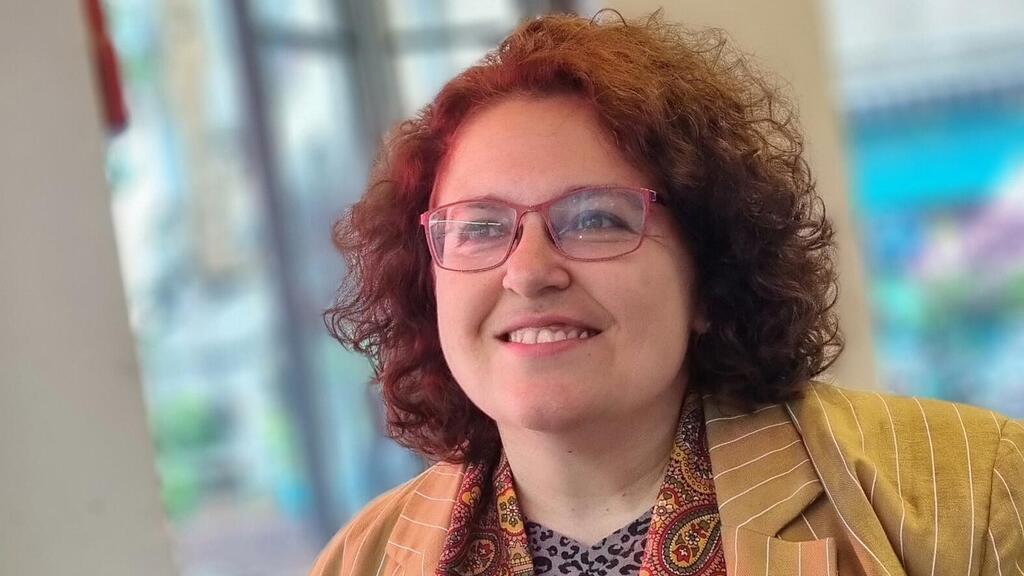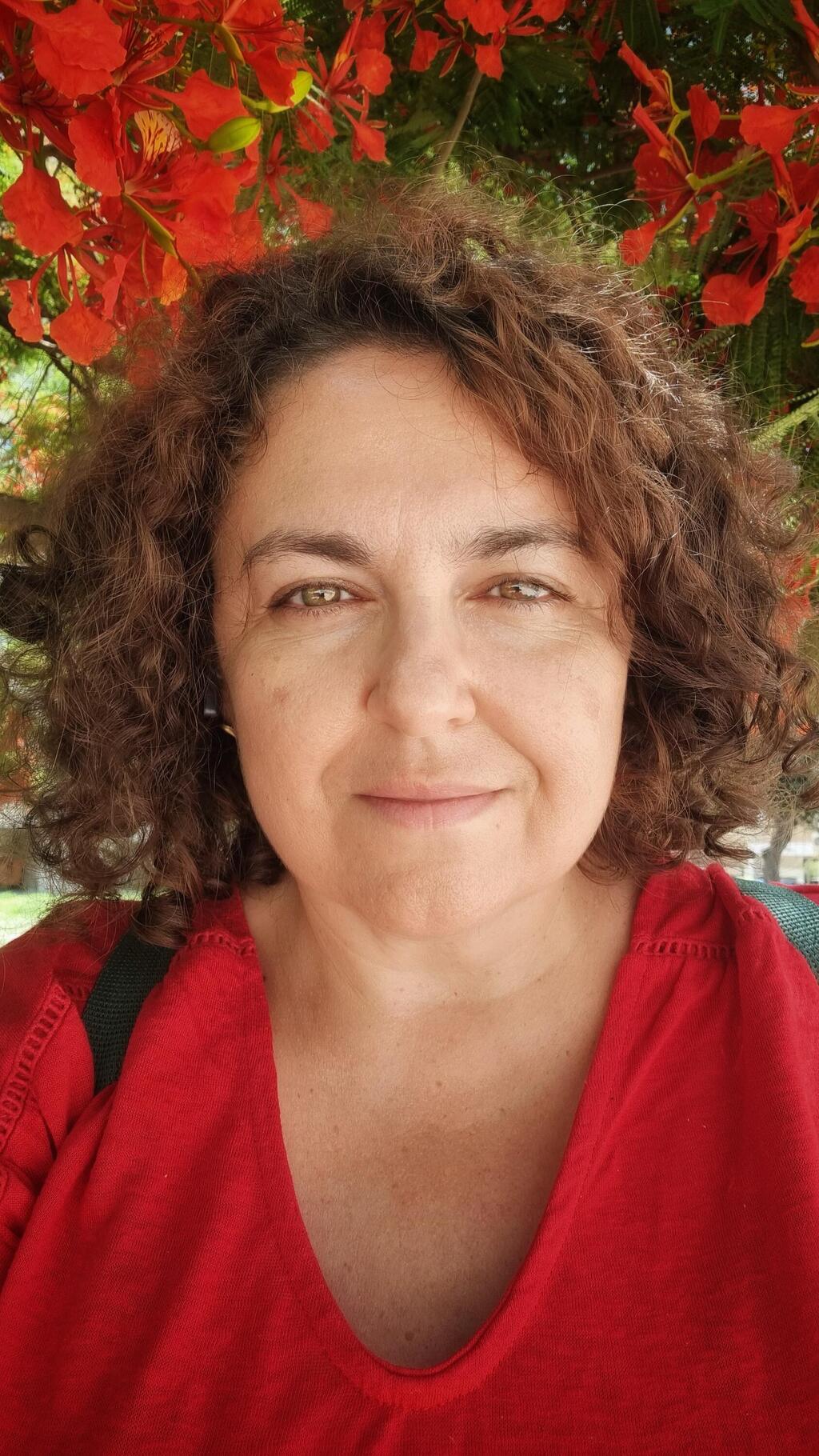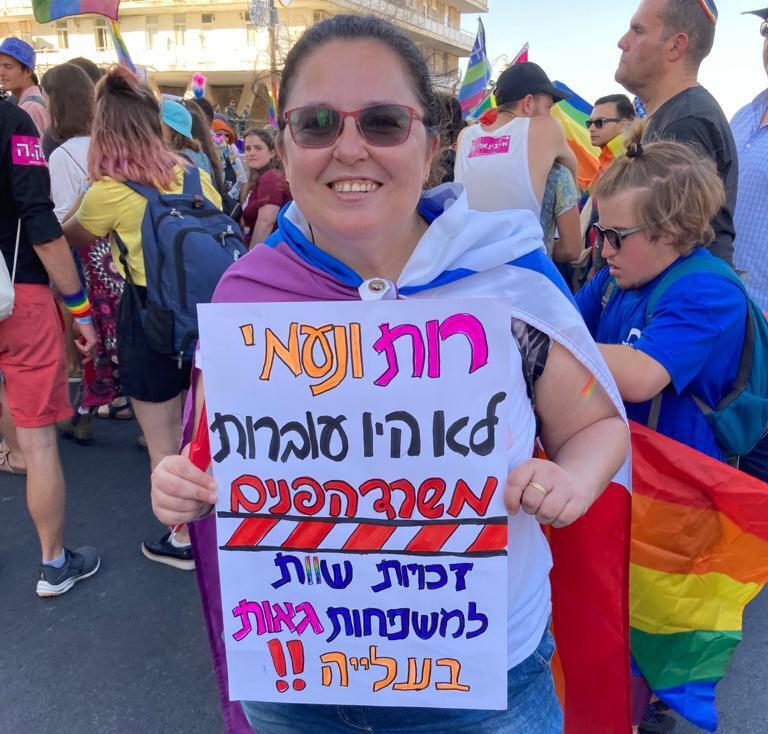Anna Talisman, as the coordinator for olim and the Russian-speaking community at the Gay Center-TLV LGBTQ Center, how are you doing? It's clear that the anti-LGBT legislation in Russia is only getting worse.
"Exactly a decade ago, in 2013, Russia implemented the 'prohibition of homosexual propaganda among minors' law, which set the stage for an increasingly hostile and LGBT-phobic environment. Violence against LGBT individuals was legitimized, portraying them as foreign, corrupting influences that undermine traditional Russian values, family and society.
More stories:
Just six months ago, in December, the law was further expanded to ban any mention of LGBT individuals in the media. More recently, a new stringent law was passed, forbidding medical assistance and gender-related treatments for transgender individuals. These laws are shocking and inhumane, aimed at distancing Russia from the West, with the belief that 'our' family values differ significantly from the "West that destroys families."
3 View gallery


Anna Talisman is coordinator for the Russian-speaking community at the Gay Center-TLV LGBTQ Center
(Photo: Romy Sutanik-Talisman)
Who is driving this destructive legislation?
"Obviously, Putin is the one who sets the tone, seemingly convinced that Russians need a scapegoat to hate and hold responsible for all global issues. During his election campaign, videos demeaning LGBT individuals circulated, and Russian propagandists continue to blame them for political failures and conflicts, even going as far as comparing it to the tactics employed against Jews in the 1930s."
How is the legislation affecting Russian communities?
"Violence against LGBT individuals in Russia is on the rise, directly impacting us and fueling a growing anti-Putin sentiment. A significant percentage of the 70,000 immigrants who arrived from Russia, Ukraine and Belarus last year, amounting to at least 15%, are likely part of the LGBT community."
Talisman, 49, was born and raised in Ukraine during the Soviet era. In 1991, at the age of 17, she immigrated to Israel with her parents and grandmother during the "Great Immigration" from the countries that had made up the Soviet Union. She earned her social work studies degree from Tel Aviv University and has been working at the LGBT pride center in Tel Aviv since its establishment. Talisman currently holds the position of aliyah coordinator and is responsible for the Russian-speaking LGBT community.
What are the unique challenges for the LGBT community immigrating Israel?
"First and foremost, the experience of an immigrant, whether new or long-established, differs in many aspects from that of someone born here. For new LGBT immigrants, the situation can be particularly vulnerable. The majority of them have spent years concealing their identity due to the high level of homophobia in their family and surroundings. Upon arriving in Israel, it's not an instant transition to living openly; it's a process that requires time and support, especially during the complex absorption journey.
"Unfortunately, there is no clear protocol for the immigration of LGBT individuals or families within the route involving the Jewish Agency, the Ministry of the Interior, and other involved entities. This lack of clarity can lead to difficulties and challenges during the immigration process."
What was it like growing up as a lesbian in a conservative communist regime?
"In the Soviet Union, there was a complete absence of dialogue and discussion surrounding sexual identity. There was no one to turn to or engage with on this topic. As a result, individuals had to navigate their own path and self-discovery when it came to understanding and accepting their sexual identity."
When did you come out?
"A few years after immigrating to Israel, I pursued social work studies at Tel Aviv University, which played a pivotal role in shaping my beliefs and perspectives. It was during this time that I found the words and the courage to express everything I had always felt. At the age of 23, shortly after meeting my partner Jenny, I came out of the closet, and we have been together ever since."
How did your family and friends take it?
"Accepting my identity was an arduous journey that required considerable time and effort. The situation two decades ago was different, and I faced numerous challenges with my family. However, today, everything is absolutely fine, and I am content with where I am."
When was the Russian-speaking LGBT community formed in Israel?
"After coming out, my partner and I sought out more LGBT individuals, but the existing groups didn't resonate with us. We couldn't find any Russian-speaking LGBT community or organization that aligned with our needs, so we took the initiative with some friends and founded our own community.
In the late 1990s, as we shaped the Russian-speaking LGBT community, we prioritized representing our unique voice and identity. We organized cultural events that reflected our perspective and established our own narrative. At that time, we noticed a lack of acknowledgment of homophobia in Russian-language media, which had significant influence. To address this, we founded the 'Russian Forum Against Homophobia' and made considerable progress in advocating for our cause."
Is Russian homophobia apparent in Russian-speaking communities around the world?
"I hope that Russian homophobia doesn't extend that far. Increased media diversity can help avoid incitement. However, we still observe some Russian speakers, particularly the older generation, connected to Russia's media channels that propagate hatred and prejudice, which can have a significant impact."
Is the war in Ukraine creating a rift between Russians and Ukrainians in Israel?
"Indeed, there have been instances in the support groups I oversee where Ukrainian immigrants expressed anger at statements justifying the war. Additionally, some Russian immigrants have expressed fear of potential hostility within the predominantly Ukrainian group."
Is there an organization for the Russian-speaking LGBT community in Israel?
"Currently, there isn't a formal organization, but from time to time, various initiatives emerge in different places. At the Gay Center, we have been running a center dedicated to Russian-speaking LGBT individuals for two decades, organizing numerous activities, events, trainings and conferences. We also offer support groups and individual assistance. The absence of a specific organization could be attributed to the desire of new immigrants to integrate and shed their 'newcomer' status, as all immigrants commonly aspire to assimilate into society."
3 View gallery


Anna Talisman said it was difficult for her family to accept it when she came out
(Photo: Anna Talisman)
Is Ukrainian society more LGBT-inclusive than Russia?
"Ukraine is no LGBT Nirvana, but a significant contrast with Russia lies in the fact that Ukraine has not demonized LGBT people as enemies of the state. Russian claims against Ukraine include accusations of adopting a Western-style approach to LGBT, intending to hold pride parades and 'changing the gender of children.' Such propaganda is utilized to justify the ongoing conflict. Additionally, the situation for LGBT Ukrainians differs as European countries have opened their doors to Ukrainian immigrants, providing safer social acceptance than in Israel for those unrelated to Judaism. Nevertheless, numerous LGBT Jews have also sought refuge in Israel following the war.
Israel has recently refused to join the collective European condemnation against Hungary's homophobic legislation.
"Indeed, Israel's decision to abstain from condemning Hungary's efforts to pass anti-LGBT legislation is deeply concerning. It reflects the direction the country is heading and provides support to individuals like (NOAM party Knesset lawmaker) Avi Maoz. Prior to this, Israel's refusal to join the convention against violence against women was influenced by Bezalel Smotrich. These actions raise questions about the government's stance on LGBTQ+ rights and gender equality."
Do you believe what happened in Russia could happen here?
"I am confident that the situation in Israel is different because there is a significant portion of the public that strongly supports equality and our rights. The country has a large activist community, and I firmly believe that they will stand up to protect us and advocate for our rights."


